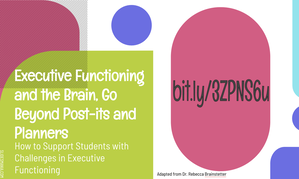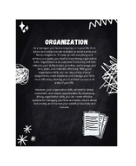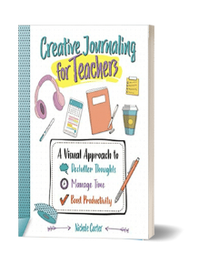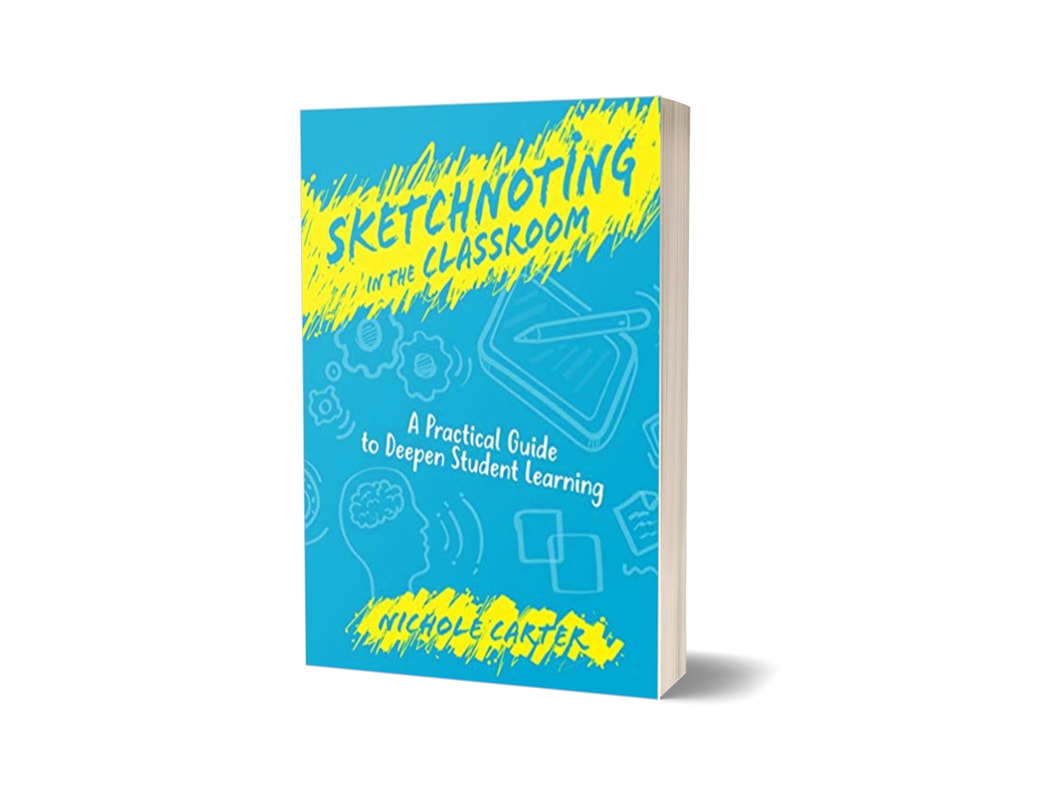|
After going to a Learning & The Brain and hearing a session on Executive Functioning I have gone down a rabbit hole. I have been working on a workbook with journal prompts and activities as well as a presentation for teachers in my district for our latest staff development day. See my slides from that day below.
Admin Presentation
Teacher Presentation
Executive functioning skills are crucial for teens to excel in school and beyond. These cognitive processes, including working memory, cognitive flexibility, organization, time management, response inhibition/impulse control, emotional self-control, auditory attention, visual-spatial processing, task initiation, and focus and task completion, play a pivotal role in students' ability to manage tasks, plan and prioritize, regulate emotions, and achieve academic success.
Executive functioning skills for teens can be developed and strengthened to support academic success. Let's talk about some practical tips and strategies that teens can implement to enhance their executive functioning skills and thrive in school. Understanding Executive Functioning Skills and Their Impact on Academic Success
Executive functioning skills are the cognitive processes that enable individuals to manage and regulate their thoughts, behaviors, and emotions to achieve specific goals. These skills are critical for academic success as they help students with tasks such as planning, organizing, initiating and completing assignments, managing time effectively, staying focused, and regulating their emotions.
Teens with strong executive functioning skills are better equipped to handle the demands of school, including managing multiple assignments, organizing study materials, managing time, and staying focused during class. On the other hand, students with weak executive functioning skills may struggle with time management, procrastination, forgetfulness, impulsivity, and difficulty shifting between tasks, which can significantly impact their academic performance. Strategies for Enhancing Executive Functioning Skills in Teens
Fortunately, executive functioning skills can be developed and strengthened with practice and support. Here are some practical strategies that teens can implement to enhance their executive functioning skills and improve their academic success:
To see many more examples of activities, as well as journal prompts see my workbook on amazon!
Recent Admin Questions & Follow Up
I recently did a session with all middle school administrators and they had some very good questions that I wanted to follow up with, For example they were curious about how technology use, sleep, and lack of physical activity could attribute to some of the behaviors they were seeing in their buildings. I also brought up planners, as I am want to do, and one admin followed up with a question about the efficacy of a digital planner over a paper physical planner for executive functioning skills. Here is what I was able to find out.
Impact of Technology Use and Executive TechnologyThere is ongoing research exploring the impact of technology on executive functioning skills in youth. However, it's important to note that research in this field is dynamic, and new studies may be conducting as we speak. Here are some general observations based on research up to now:
It's important to approach this topic with nuance, recognizing researchers are exploring how the quality and purpose of technology use, as well as the type of content consumed, influence executive functioning. Physical Movement and Executive FunctioningPhysical movement and exercise have been associated with various cognitive benefits, including positive effects on executive functioning skills, in children and adolescents. Some things to think about in relation to physical movement and executive functioning skills, particularly in the age range of 10-13:
Digital Planner:
0 Comments
Leave a Reply. |
Nichole CarterDigital innovator, speaker, & author. Archives
April 2023
Categories
All
|
Proudly powered by Weebly






 RSS Feed
RSS Feed